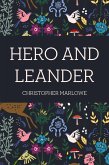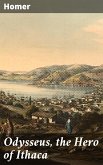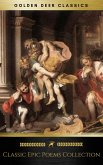In "Hero and Leander," Christopher Marlowe crafts a poignant narrative of tragic love set against the backdrop of Greek mythology. This narrative poem, primarily composed in elegant, rhythmic blank verse, explores the passionate yet doomed romance between Hero, a priestess of Venus, and Leander, a youth from Abydos. Marlowe's distinctive literary style merges classical themes with Elizabethan sensibilities, showcasing his gift for lush imagery and poignant emotional depth. The poem's exploration of love, desire, and the tragic consequences of fate exemplifies the Renaissance preoccupation with humanism and individual emotion, placing Marlowe at the forefront of the dramatic and poetic movements of his time. Christopher Marlowe, a contemporary of Shakespeare and a pioneer of blank verse, was heavily influenced by the classical texts and philosophical ideas that permeated the Elizabethan era. His vibrant life, marked by a mysterious death at a young age, reflects the tumult of his work. Marlowe'Äôs educated background, particularly his time at Cambridge, allowed him to immerse himself in literature and classical studies, which undoubtedly informed his writing and thematic interests in love, death, and destiny. "Hero and Leander" is a splendid read for those intrigued by the interplay of love and tragedy within a classical framework. Marlowe's lyrical prowess and innovative narrative style make this poem an essential exploration of early modern literature, appealing to scholars and poetry enthusiasts alike. This work not only solidifies Marlowe's legacy but also captivates the reader with its timeless themes and emotional resonance.
Dieser Download kann aus rechtlichen Gründen nur mit Rechnungsadresse in A, B, BG, CY, CZ, D, DK, EW, E, FIN, F, GR, H, IRL, I, LT, L, LR, M, NL, PL, P, R, S, SLO, SK ausgeliefert werden.









